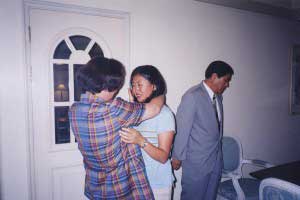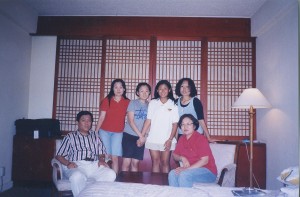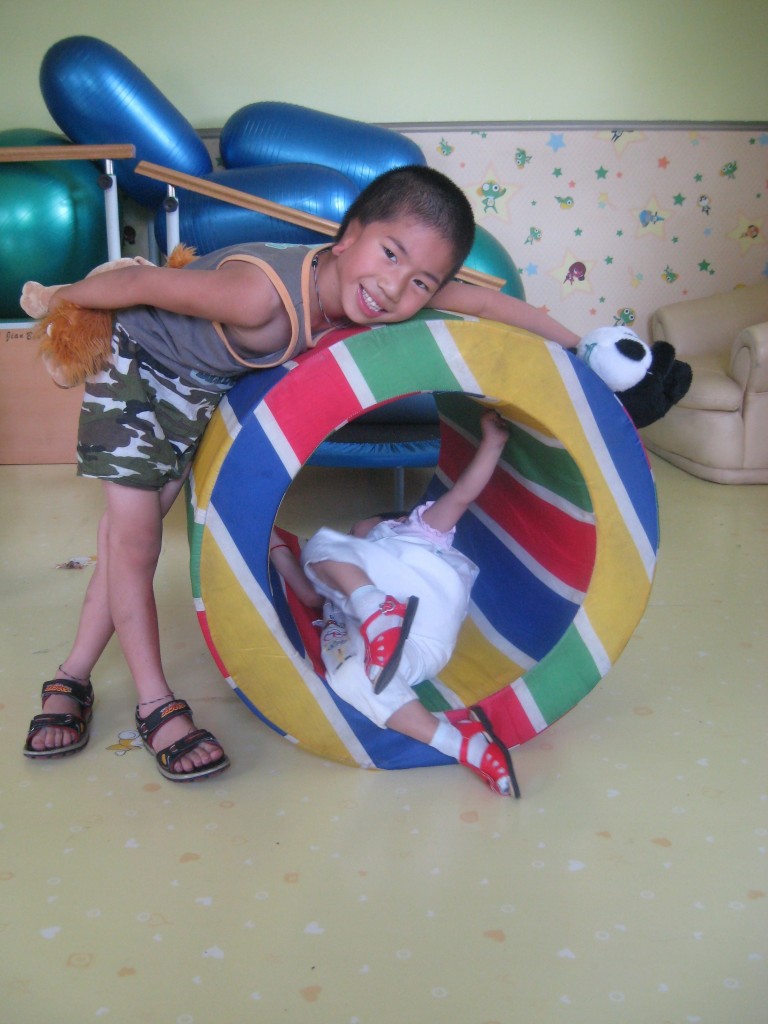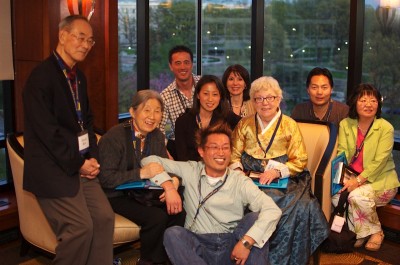How a silly movie helped one adoptee keep it real.

When I think of my childhood, I can’t resist thinking of good ole Navin Johnson. You know, he’s Steve Martin’s quirky character in the 1979 movie, The Jerk. Navin grew up as the only white kid in a black family from Mississippi and was obnoxiously delusional about his upbringings. And despite loving his adoptive family more than anything else, he had a whole world to see.
My mom hated that movie. But oddly, there’s something I can still relate to.
Just like Navin, I grew up a poor, white kid in rural Missouri. Okay, we weren’t really poor, but my parents certainly made sacrifices for me. I was a first-generation college student. My dad spent a lot of hours operating a backhoe on various construction sites to get me through my undergraduate years. My mother gave up her own education to cart me around to tap classes and basketball practice in high school. I was a good point guard, but I wasn’t that good.
For the most part, I grew up like any other white girl in the Midwest. I was the only Asian-looking girl in my class up until high school graduation. I had little interest in anything that sounded Asian-y. I once remember throwing a fit when my mom suggested I take a martial arts class. Of course, now I regret not knowing any self defense moves.
The point is, as a child, I thought I was white and nothing else. Then, I grew up.
Some people might assume it took meeting my birth family to make me realize that yes, indeed, I was Korean. That’s partly true. After all, we reunited when I was practically a kid. At 18, I discovered my birth family was intact. My three sisters and I were all born within about 5 years from one another. They were learning English. I had already coincidentally registered for Korean language classes at the University of Kansas. We were well on our way to adding each other to our family trees. My parents at home felt like they got three more Korean girls out of the deal. Life was good.
So, I took my newly-found Korean roots to KU. I joined the Asian American Student Union. I started hanging out with Korean kids from my language class. Then something weird happened. A few of my new friends turned on me.
Even though many are living happy lives, many will also tell you they don’t feel like they fully belong in any place. In one breath, my friends would tell me they just saw me as Michelle, but in the second breath, they’d make some wise crack about me being Asian.
“You’re so white-washed,” one girl said.
“You aren’t diverse enough,” another guy told me.
“It’s a shame you’re adopted,” another one said.
I remember feeling betrayed because I had put so much effort into becoming their friend. Here I was, unnaturally calling the older boys “ohpa” and learning phrases like “maekju masheetda” to cheers a beer, and what did I get in return? A swift kick in the shins.
It made me angry because these kids were actually born in the United States, unlike me. And they wanted to scold me about diversity? Most of them only hung out with Korean students in the science library, speaking only Korean to one another. Where were their non-Korean chingus?
I was confused. No white kid saw me as white. No Korean kid saw me as Korean. Who was I?
I’ve heard so many adoptees ask this question. Even though many are living happy lives, many will also tell you they don’t feel like they fully belong in any place. In one breath, my friends would tell me they just saw me as Michelle, but in the second breath, they’d make some wise crack about me being Asian. I could never escape looking different in the United States. In Korea, I could never escape acting different. My situation became even more complicated when I started my career in television news. Though I was open about my adoption, not all viewers took the time to read my bio on the station’s website.
A small-town police chief affectionately called me Connie Chung. I hated it, but I took it with a smile. Once a viewer called to complain that “a Japanese woman shouldn’t be covering our Memorial Day events.”
On the flip side, there were great moments. Korean parents would approach me and tell me they were so proud of me. Adoptive parents would say things like, “You’re the only Asian adult my child has to look up to.”
It was then I realized I had a responsibility as an adoptee and as a Korean-born person to be an advocate for both adoption and Korean culture.

Looking Korean is natural, even if I wasn’t raised with a Korean family. People always see my face first. I even took on a professional pen-name to reflect that reasoning. And believe it or not, it’s made my life so much easier. I’m sincere about my fascination with Korean culture, and though I’ve fought it, adoption has dictated so many of my life choices.
As I write this, I’m hoping I’m not doing readers a disservice by withholding some harsh realities of my adoption or the struggles I’ve endured while trying to build a relationship with my biological family members. But, I’m the kind of person who believes in the power of positive thinking. No situation is perfect. It’s a constant decision to keep my glass half full.
The interesting thing about knowing my biological sisters is that they see my glass as overflowing. It took me years to discover, but my sisters used to wish they were the ones who were adopted. They were envious of my life in the United States. I’m still not even sure they like me all the time, which is hard to swallow because I am completely head over heels for them.
Unlike Navin Johnson, I’m not oblivious to my surroundings, but I do choose to be ignorantly blissful every now and then. I never thought adoption would be my passion, but it wound up defining my life. And, with all of its complexities, I wouldn’t want that to change. Adoption is who I am. It’s who many of us are. And with continued efforts and support for each other, I hope we can make a difference in the way the world sees us.
Michelle Li | Adoptee


Thank you for this! I think your story will be helpful to my daughter (3 yo, adopted from Korea) as she gets older. Our family is a mix – my wife is Korean, I am Jewish, and I always hoped that my daughter would feel equally at home with both traditions as she gets older, but I know she’ll have to work it out on her own.
Thanks for sharing this with us.
Do you have kids? Do you plan on having kids? WOuld you adopt, as well?
Hi Joshua! I’m so glad you enjoyed the read! I don’t have kids yet, but I’m planning on it. My husband and I have talked about adopting. He was really touched when he went back to Korea with me in 2009. We stopped at Holt and held babies! It was the best.
I would love to keep in contact… Feel free to check out my two websites (MichelleLiTV.com and BecomingSisters.net)
See you!
Im glad you are apart of me! Loved the article.
Wonderful article Michelle! I didn’t realize you were such a talented author!
Loved your article. You have always been very special to us and we are so proud of all that you do.
Thank you for writing this, Michelle. My husband and I are looking into adopting an older girl from India, and I am very concerned about helping her to maintain her cultural identity. I am eagerly reading anything I can find from the international adoptee’s point of view on this subject. Thank you once again for sharing your experiences.
I can totally relate to you Michelle.
Being the only asian in all my college courese here in the Midwest (Nebraska) it has always made me feel uncomfortable. I pretty much had no social life due to being “asian” and differnt from their culture and cast out.
But you know what? YOU just gotta keep your head up becaue there are thing that can bring postive thoughts into you. Like i bonded with my family alot! And maintained my acadamics.
Best of luck to you and thanks for the article i can totally relate. 🙂
My friend Michelle you are so remarkable and such a beacon for humanity; proud to know you and you are the messenger and your life story will impact many people. Adoption and your awesome parents will motivate others to give a child a life of love and nurturing !
First of all, “The Jerk” is one of my favorite movies & I still yell, “The new phone book is here! The new phone book is here!” when the new phone book is here! Secondly, I can’t wait for your broadcast later today! Third, it’s always eye-opening to me to know more & more about your adoptee experience & feelings about it & the life you lead in the Midwest. Finally, knowing your ups & downs makes me love you & value our friendship all the more. I love your honesty, your ability to express yourself & that you continue to try to figure out all the crap & blessings that have come your way. I find being human very stressful & disappointing at times, but your perseverance inspires & motivates me to keep on trying to get myself & life right. See ya soon on the World Wide Webs! xoxo